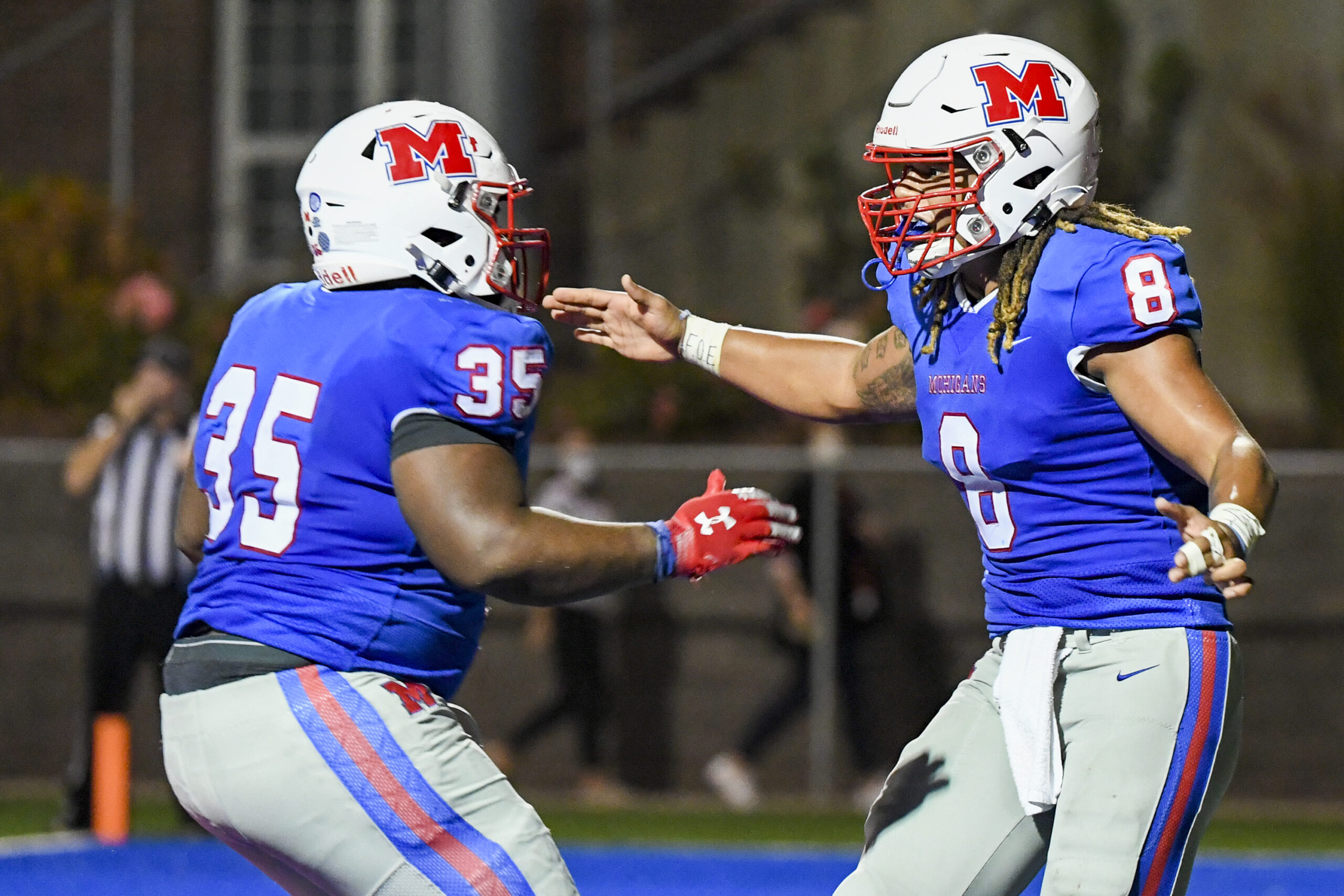MORGANTOWN, W.Va. – Just in time for the holidays, the West Virginia Department of Education announced Friday, in coordination with Gov. Jim Justice and State Board of Education President Miller Hall, high schools impacted by the COVID-19 pandemic will receive $4 million as part of the new Extracurricular Equity Fund. The fund will benefit both public and private high schools.
The money will go to help all extracurricular activities, not just sports. The monetary support is based on student enrollment, allocating $50 per student. Further, $2 million will be utilized from the CARES Act money allocated to West Virginia, and the remaining $2 million is being matched by Justice.
“As a coach, I’m in our schools all the time. I know how hard our athletes work, how diligently our bands and auxiliary groups prepare, and how hard our students in various clubs and groups work,” Justice said. “These extracurricular activities are so important to our kids and our communities. The pandemic has been an absolute punch to the stomach in a lot of ways, but I do not want losses this year to adversely affect these activities in the years to come. That’s why I’m so proud that we’ve found a way to help through our Extracurricular Equity Fund. With the additional resources provided through these funds, we hope that extracurricular activities can be sustained and continue to provide children with rich and valued experiences. I want to thank Superintendent (Clayton) Burch for helping make this important initiative come to life.”
“We continue to hear from our counties and our schools about the impact of COVID-19,” Burch said. “We’ve worked very hard to provide a framework of support around all aspects of our education system. This fund is a continuation of that support and it will be beneficial today and once the pandemic is in our rearview mirrors. We greatly appreciate the Governor’s support in this endeavor.”
Morgantown High received the biggest allotment of money, a total of $92,550. When asked about how this will help mitigate the athletic department’s losses this year, MHS athletic director John Bowers noted it would essentially even things out.
“I had to buy [the] boys’ and girls’ basketball teams basketballs, obviously you can’t have a season without basketballs,” Bowers said. “Anything that was necessary, we purchased, but if our uniforms could get by another year, we were going to push them another year. We have to be very good stewards of the money that we’ve been blessed with. We were telling a lot of people no when in years past, we’ve never been frivolous but we’ve been able to be equitable and share the wealth, so to speak, and support all our teams the same way. This will help us get back on our uniform rotation and things of that manner, get us back to where we were.
“Somebody texted me and said we were getting some relief, and I was obviously excited. Then I saw the number and was really really excited. We’re not frivolous. Some of my coaches will say I’m a little cheap, and that’s OK – I think our coaches are fantastic, they’re not frivolous either – but if there’s an item we can go out and purchase for our teams whether that’s new uniforms, safety equipment or training equipment, it’s nice when you have the money to do that. And it was disheartening to not be able to do that [this year].”
In years past, MHS brought in between $8,000-10,000 per home football game just on ticket sales. Games like the Mohawk Bowl brought in more, Bowers noted, and with a six-game home slate set for this past season, the school lost out on a lot of money – the best night garnering around $2,300 because of limited attendance.
“You’re expecting to have that $60,000 in a normal year to power you through the rest of the seasons to pay for officials [and other expenses], so it goes pretty quickly,” Bowers said.
Basketball season also depends on who the Mohigans are playing – UHS being the biggest moneymaker and one that pays for the rest of the winter sports season – but usually, the school loses money on single games when fans think MHS will win handily. Essentially, and in Bowers’ words, “football has to carry everyone else.”
Still, $92,550 is huge right now and will benefit the school regardless of what happens concerning winter sports.
“For our operating budget, this will be very helpful whether we have a basketball season or not,” Bowers said. “It will be pretty close to what we meet. We have 22 varsity sports, a ton of JV, multiple freshmen sports, so we have plenty of money to spend.”
The good news, especially on the heels of news that COVID-19 vaccines are becoming more available, is that spring sports are bringing in money for Morgantown High when conditions are right – something not very common. Bowers noted that when all the baseball and softball fields are full at Mylan Park on a beautiful spring day, those games bring in a good sum of cash. Bigger lacrosse games have also had positive yields.
“People want to talk about the fall and obviously that was crippling, and then again, this winter perhaps, but last spring hurt, too. It’s been very helpful and gives you a little bit of hope going into the new year,” Bowers said. “Obviously your thoughts and prayers are still with people afflicted with his terrible disease and that everyone is going to be healthy enough through this holiday season, but it was good news on the financial front at the school.”
Other Monongalia County high school allocations are: Clay-Battelle ($11,700), Trinity Christian ($3,600) and University ($66,800). Preston High received $60,450.
TWEET @andrewspellman_




